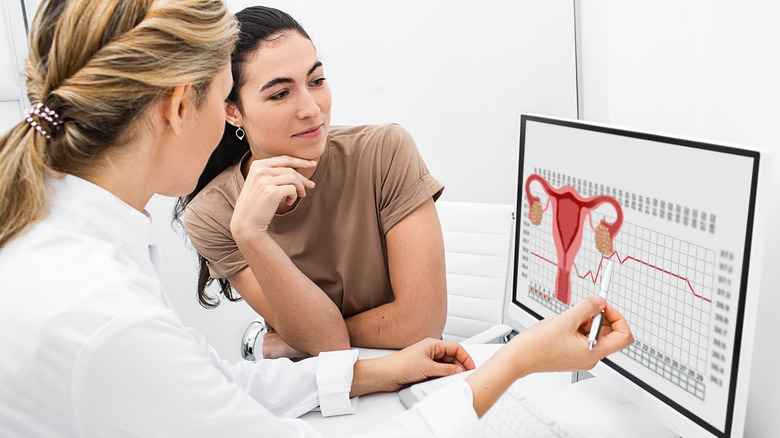When Should You Get Your First Pap Smear?
Pap smears, also called cervical smears or pap tests, have helped prevent deaths from cervical cancer. According to the U.S. Centers for Disease Control and Prevention, cervical cancer used to be the number one cause of cancer death in women. Over the past 40 years, pap smears have helped doctors identify cervical precancer before it turns into cancer, and that has significantly decreased the number of deaths. The American Society of Clinical Oncology states the deaths from cervical cancer have dropped by about half since the middle of the 1970s, and it's partly because of pap smears.
Pap smears can save your life by detecting cervical precancer, and they only take a few minutes. Your gynecologist will look for abnormal cells, which are often precancerous. Finding and removing precancerous cells can save your life by preventing them from turning into cancer with a 95% success rate (via the Office on Women's Health).
When you need a pap smear
You should get your first pap smear at the age of 21 and continue to do so until 65. Up to 29, you should get a pap smear every 3 years. After that, and up to 65, you'll need human papillomavirus (HPV) testing and pap smears. You can get them done simultaneously, every 5 years, or opt to have a pap smear every 3 years and an HPV test every 5 years. However, your gynecologist might recommend pap smears more often (via the Office on Women's Health).
The Mayo Clinic recommends preparing for your pap smear by avoiding anything that might wash away abnormal cells. This includes sex, douching, spermicidal foams, or vaginal medicines. Also, try to schedule your appointment when you won't be on your period.
During your pap smear, you'll be asked to undress from the waist down and lie down with your feet in stirrups. Your doctor will use a speculum to be able to see your cervix. Then, they'll take some cell samples using a small spatula and soft brush, and those samples will be sent off for testing. Your doctor will contact you about your results (via the Mayo Clinic).


